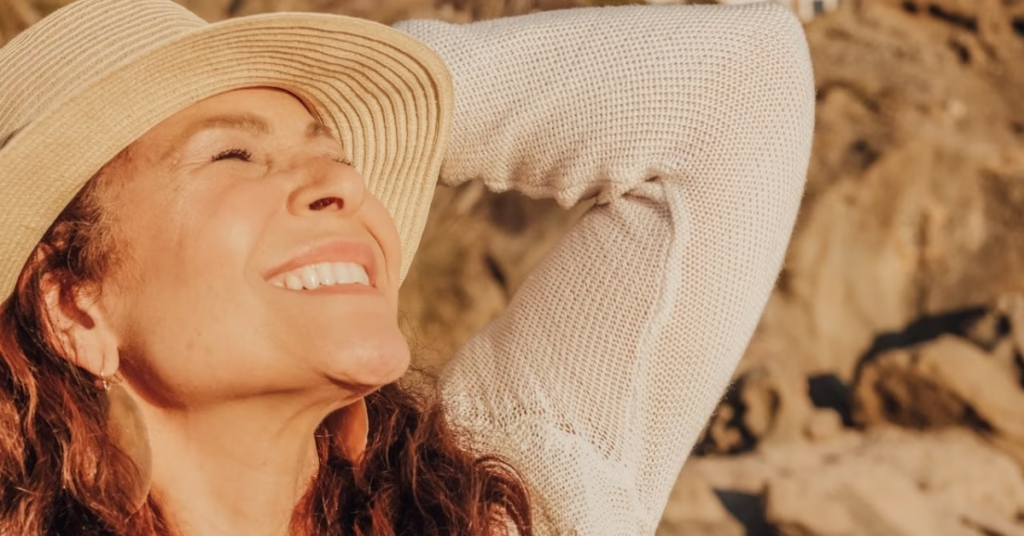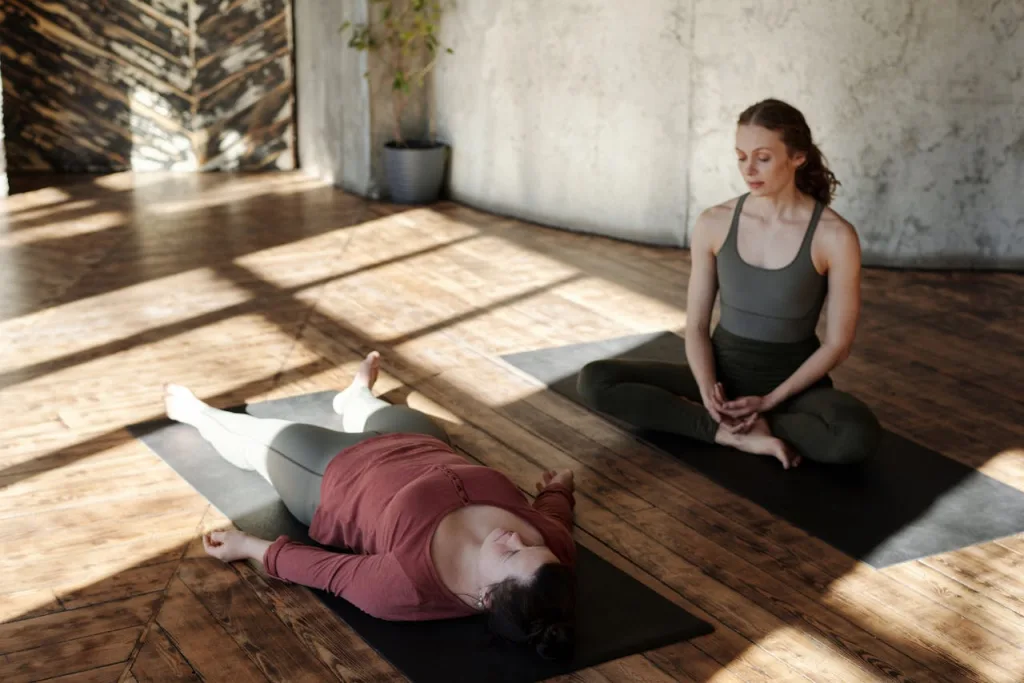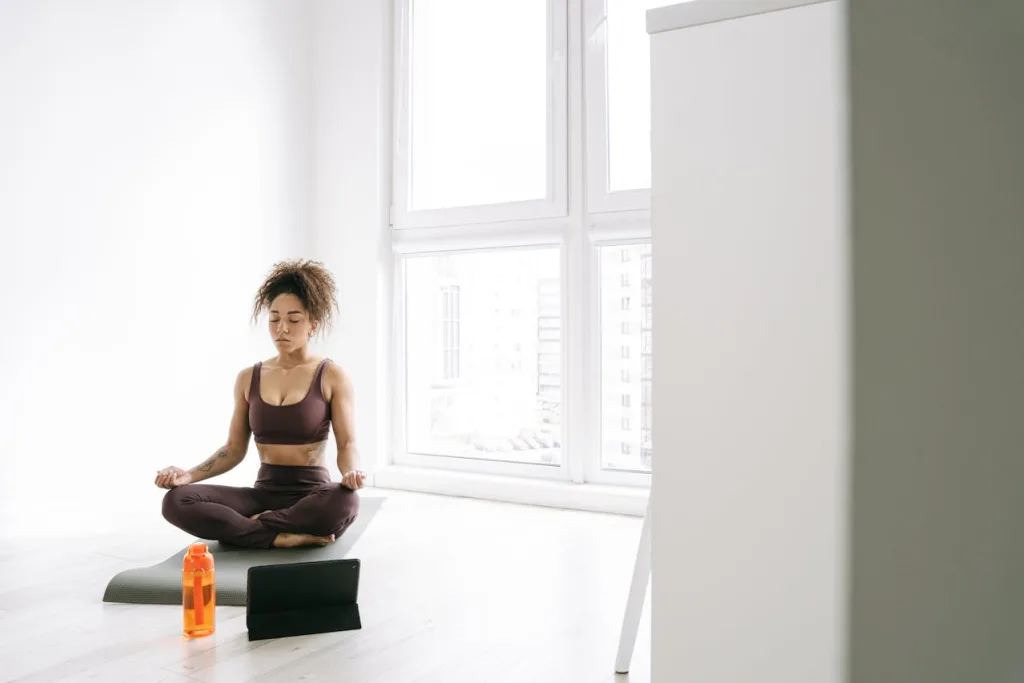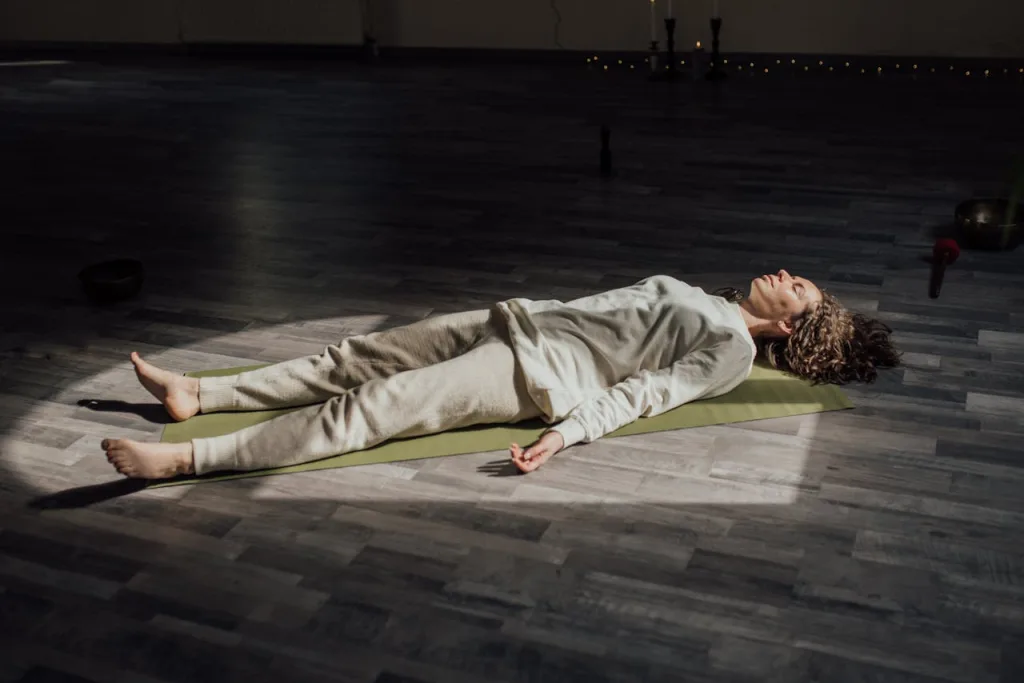Being a woman in her 40s in today’s society isn’t always easy. Many of my friends are turning 40, or even 45, and I can see how they’re struggling. It’s hard to accept the number. It’s hard to look in the mirror and accept the reflection staring back at you.
Let’s be honest: after 30, most of us don’t feel our actual age. I might be 41, but inside, I feel more like 30 – confident, wiser, and far less concerned with what others think. I’m not that insecure 20-year-old anymore, but I also don’t feel like my 40s. And I also feel like my 30s just disappeared in the blink of an eye.
I recall that when I was younger, I thought people in their 40s were old, and I didn’t expect to feel the way I do now. Well, I kind of thought that this age was so long away, and here we are…
I am not going to lie, there were some hard moments accepting, but here are a few tips for aging gracefully that are based on my learnings, but also science that helped me embrace my age and not worry about the lost youth.
Let’s start with the most important step.
1. Understand Why Aging Upsets You
Journaling can be amazing for your emotional health in your 40s. Take 20 minutes to write down why aging bothers you. Getting things out of your head on paper really helps to see a clearer picture. Journaling has been proven to help with self-reflection and improve our well-being(1). It helps with self-awareness and personal growth(2).
When you journal, your fears of aging become not something abstract and in your head, but exact feelings that you can reflect on and address.
Ask yourself:
- I don’t like my aging face because…
- Does my aging face make me less lovable?
- Does it change who I am?
- Can’t I do things that a 20-year-old can? And if I could, do I really wanna do them?
Take note of what things were not that great when you were younger, and you wished you had things you have now. For example, financial stability, true long-term friends and partners, self-belief, and focusing on what you want, not on what others will think about you, and so on.
Most of us remember our youth as this beautiful, carefree time, but thinking about it, would you change the life you have now to the one you had 20 years ago?
Most of our fears about aging come from unrealistic expectations and social conditioning. Once you confront these thoughts, you’ll realize many of them are shallow or simply untrue.
2. Stop Comparing Yourself to Others (Especially on Social Media)
This is a big one. Unfollow accounts that promote unrealistic beauty standards, heavy plastic surgery (yes, the Kardashians), filtered perfection, and 20-year-olds with six-packs. Even if you know that the social media feed is just a curated highlight, not real life, your subconscious absorbs those images and creates false benchmarks.
Instead, follow accounts of women your age (or older) who embrace their natural beauty, wrinkles, gray hair, and makeup-free mornings to help boost confidence in your 40s. Let your feed reflect reality and empowerment, not comparison and insecurity.
Dedicate your feed to wisdom rather than shallow looks.
My favourite Instagram accounts that inspire me and make me feel good about aging are:
There are so many inspiring, beautiful women who are over 40 and living their best lives. It is so important to get inspired and embrace the wisdom we have now, instead of wanting to turn the clock back and smooth out the wrinkles.
3. Take Care of Your Body, It’s the Only One You Have
Your body is aging, and it needs more support to recover, build strength, and stay energized. That’s why you need to gain or maintain healthy aging habits:
- Move your body: Exercise regularly and prioritize recovery. I am pushing myself more than ever in the gym and feel the strongest I have been, but I also listen to my body and give it more time to recover. Using a Whoop band gave me a very good introduction to understanding when I need more recovery and when I can push my body more.
- Sleep well: Don’t underestimate rest. If you sleep well, you are way more functional physically as well as mentally. It is so important to prioritise sleep and have a solid nighttime routine, especially as we age. You can learn more about it here.
- Hydrate: Proper hydration improves skin barrier function and elasticity, and reduces dryness, which is common with aging. Increased water intake can enhance skin hydration and may slow visible skin aging. (3)(5)
We lose the sense of thirst with age, so keep a water bottle with you and sip throughout the day, even if you do not feel thirsty, especially if you sweat a lot through exercise, heat, or hot flushes. Try to have at least 8 cups of water each day.
- Eat intentionally: prioritize Omega-3, Vitamin A, and C, and protein-rich foods. Good nutrition is so important for keeping us looking and feeling younger.(4)(5)
At 41, I feel better than I did at 31, because I take care of myself. Fitness supports not only your body, but also your confidence and mood. Always remember, some 20-year-olds who are not looking after their bodies can look (and feel) older than 40-year-olds who nourish their body with what they need.
4. Strengthen Your Mind and Emotional Resilience
Your mindset shapes how you feel about aging. I’ve spent the past few years working on my emotional intelligence, and it’s made a huge difference. Here are some tips on how to build mental resilience in midlife:
- Practice gratitude, not just for your family, coffee, or home, but for your life and age. Be thankful for your life experiences, your growth, and your wisdom.
- Learn to deal with stress. When I look back at my pictures from a few years ago, I look way older than I look now. The reason was an enormous amount of stress and my not knowing how to cope with it. There are many strategies you can use to cope with stress, but if you don’t know where to start, meditation is one of the best ways to start.
- Replace self-criticism with self-respect. This comes from being intentional with the words you use, especially when talking to yourself. Spend some time analysing what language you use when describing yourself to others and yourself. “Is it _ oh gosh, I’m so old now, all my bones are aching” “ I’m too old for this”, or “ I am so grateful to gain so much wisdom in the last year “ “ I feel so much more alert and alive when I get a good night sleep” “ I love how defined my jaw line became”.
It is important to focus on positive things, and the more you do it, the more you will notice them. Self-talk can be putting you down or lifting you up; it is up to you to review your brain and focus on the positives.
5. Notice the Beauty in Aging
Look around you: aging isn’t unattractive, it’s natural.
Notice older people on the street. They may not fit conventional beauty standards, but if you really look, you’ll find something beautiful: kind eyes, a peaceful smile, and graceful movements.
I love talking to older people when I walk my dog. I share kind words and also receive them. It is magical to have a little chat with someone who is not in a rush but enjoys being.
Train your brain to embrace aging, not just youth. When you start seeing beauty in other older people, you will start seeing the beauty in your aging self.
You can start practising on your next walk. Notice at least one beautiful thing about an older person that passed you by, and do it every day.
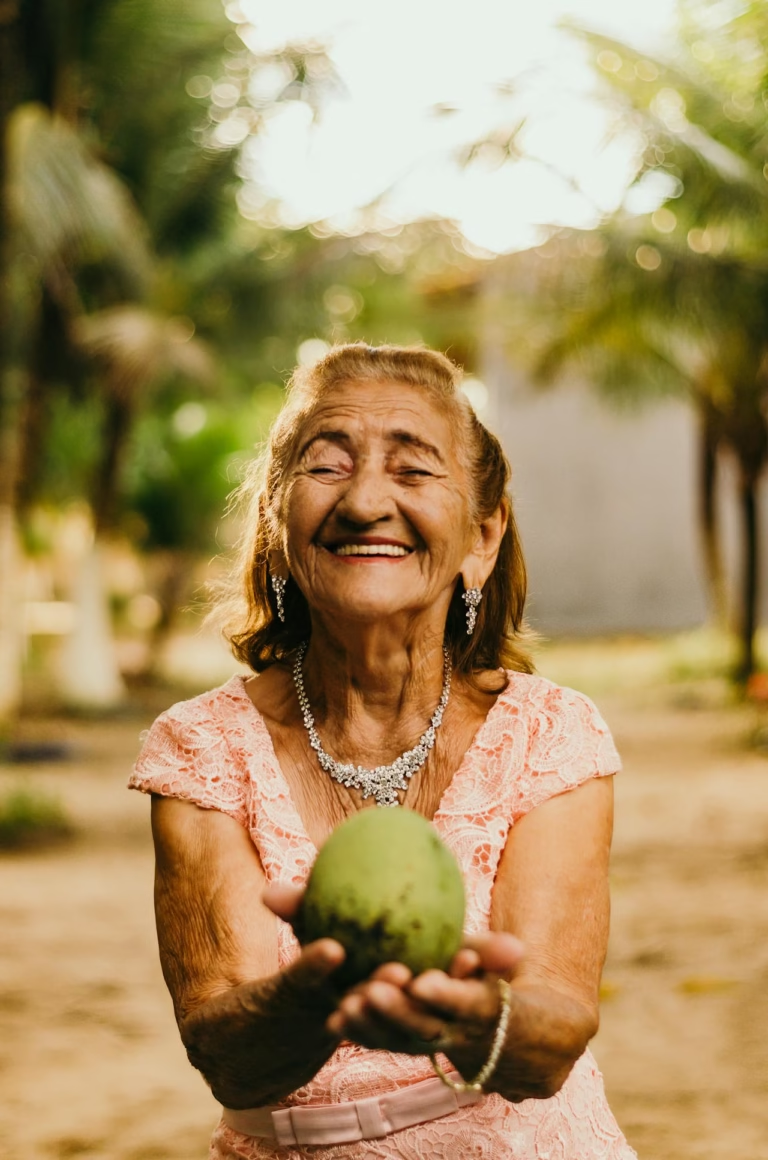
6. Care for Your Skin, Naturally and Gently
Skin care for women in their 40s is different from that of women in their 20s and 30s. You don’t need a 10-step skincare routine, but you do need to nourish and hydrate your skin more.
Use products with effective ingredients (retinoids, peptides, etc.).
- Visit a dermatologist for personalized advice.
- Use SPF daily, even in winter.
- Avoid products with harsh ingredients or ingredients that don’t suit your skin type.
And remember: consistency matters more than expensive products. And if there is something that really bothers you, well, go and have that facial or laser treatment, if it will make you happy.
7. Check Your Hormones
We are starting to learn more about how important hormones are for women’s health. After the age of 40, there are many hormonal changes in a woman’s body, especially declining estrogen, which can affect metabolism, muscle, bone, brain, and cardiovascular health. Early intervention and individualized approaches, including careful use of hormone therapy and lifestyle changes, can help manage these effects. It is important to check hormonal levels, especially after 45, when estrogen decline can be drastic. (6)
8. Boost Confidence in Your 40s: Break Free from ‘Sloth Mode’
We got used to sweatpants and messy buns during COVID, but appearance affects how we carry ourselves and how we feel. I am definitely guilty of this one. I got so used to feeling comfortable in my sweatpants and messy hair that after a while, I started hating how I looked.
- Wash and style your hair ( it’s a little move that makes you feel and look so much better)
- Wear clothes that are both comfortable and flattering ( you might want to buy some good quality comfortable clothes instead of wearing your husband’s jogging bottoms)
- Apply a little mascara or tidy your brows, not to look younger, but to feel a bit polished and confident.
I will never be the most classy and elegant person in the room, but making just a bit more effort to look presentable makes a big difference to how I feel about aging and self-esteem in general.
Confidence in your 40s is not about glam, it’s about showing up for yourself. It is not about looking younger; it is about looking good for your age.
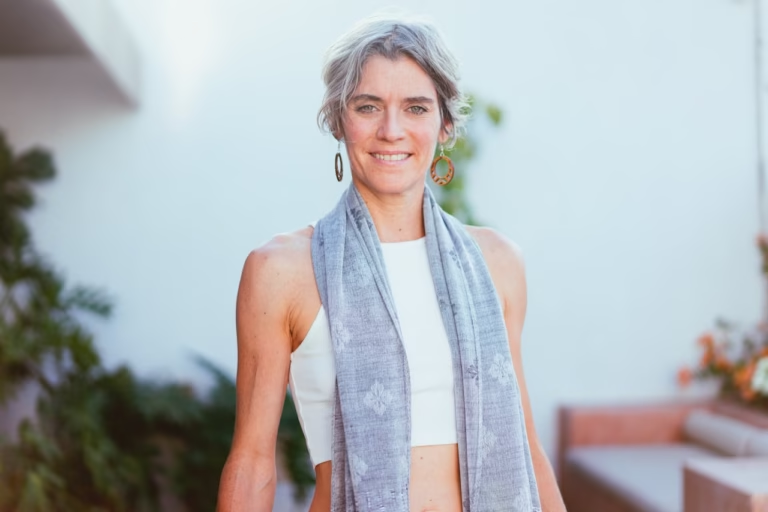
9. Zoom Out – You’re a Whole Picture, Not Just a Wrinkle
We obsess over tiny imperfections we see in the mirror, every pore, wrinkle, or blemish. But when you look at others, you see the full picture, not just flaws.
Step back. See yourself as a whole painting, not a zoomed-in corner. Let go of the obsession with perfection. And hey, there is a plus side to the eyesight going a bit worse, at least you can’t see all those small imperfections on your face.
10. Accept That Some Days You Won’t Like How You Look, and That’s OK
Not every day will be a good skin day. Sometimes you’ll be puffy, tired, hormonal, or just off. Aging doesn’t mean looking flawless. It means learning how to support yourself through the fluctuations.
- Use a cold compress.
- Take a quick walk.
- Do some face yoga.
- Wear sunglasses and smile anyway.
Let those days remind you to be gentle with yourself.
11. Embrace the Natural Cycle of Life
Here’s the truth: we all age. As soon as we’re born, the clock starts ticking. No one escapes aging. The seasons change, the trees grow older, and so do we.
Embracing aging gracefully is understanding that you can’t stop the process, but you can honor it. Keep your body strong. Keep being curious. Keep living.
One day, when you’re 80, you’ll look back at 40 and realize how young you still were.
So love yourself now.
You won’t get this version of you again.
To summarise, How to Embrace Aging Gracefully in Your 40s
Aging gracefully in your 40s is not about looking younger; it’s about prioritizing health, self-care, and confidence. By focusing on nutrition, mindset, skin care, and emotional resilience, we can embrace midlife as a time of growth, strength, and beauty.
FAQs About Aging Gracefully in Your 40s
How do you embrace aging gracefully in your 40s?
By focusing on self-care, building emotional resilience, and shifting the mindset from youth obsession to self-acceptance. Also, being kind to yourself and looking after your body through exercise, healthy nutrition, and hydration.
What are the best self-care tips for women over 40?
Prioritize exercise, sleep, hydration, nutrient-rich foods, and skincare tailored to your age.
How can I stay confident as I age?
Reduce social media comparisons, practice gratitude, dress in ways that empower you, and focus on strengths gained with age.
Is 40 too late to start a healthy lifestyle?
It is never too late; research shows building healthy habits in your 40s can significantly improve energy, skin, and longevity. It is also shown that you can not only reverse but also build muscle and bone density after 40.
References
- Blake, Tim K. “Journaling; An Active Learning Technique” International Journal of Nursing Education Scholarship, vol. 2, no. 1, 2005. https://doi.org/10.2202/1548-923X.1116
- Mannesa, M., & Nur, I. (2025). Peningkatan Regulasi Diri Melalui Journaling: Studi Pada Remaja Perempuan. Psychopolytan : Jurnal Psikologi. https://doi.org/10.36341/psi.v8i2.5664.
- Li, S., Xiao, X., & Zhang, X. (2023). Hydration Status in Older Adults: Current Knowledge and Future Challenges. Nutrients, 15. https://doi.org/10.3390/nu15112609.
- Tranchida, N., Molinari, F., Franco, G., Cordaro, M., & Di Paola, R. (2025). Potential Role of Dietary Antioxidants During Skin Aging. Food Science & Nutrition, 13. https://doi.org/10.1002/fsn3.70231. b
- Safitri, N., Cahyaningtyas, B., Putri, V., Dewani, L., Nugraheni, E., Nugrahanti, A., Saputri, M., & Agustin, E. (2025). The Key to Healthy and Radiant Skin with Balanced Nutrition. MAGNA MEDICA Berkala Ilmiah Kedokteran dan Kesehatan. https://doi.org/10.26714/magnamed.12.1.2025.87-93.
- Liu, Y., & Li, C. (2024). Hormone Therapy and Biological Aging in Postmenopausal Women. JAMA Network Open, 7. https://doi.org/10.1001/jamanetworkopen.2024.30839.
Silvija Meilunaite, PN1-NC, CSMC, is a certified nutrition and menopause coaching specialist who writes about midlife health, nutrition, and evidence-based wellness. She focuses on research-driven approaches to feeling better in your 40s and beyond, with a special interest in low-tox living and supportive daily habits.
- This author does not have any more posts.

